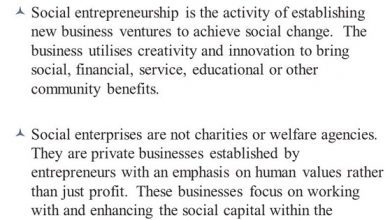Continuing education in business its benefits and promotion
Continuing education in the business
Continuing education in the business is a complement to professional training, it bets on learning and on the development of skills that will be essential for the employee’s growth within the company and outside it.
Continuing education is the key to the future of any company , after all, it is practically impossible to hire all the talent needed to tackle new projects.
It bets on constant improvement, the insertion of new knowledge, the development of new skills and the acceptance of new challenges.
This is one of the main setbacks that companies’ HR is facing, especially in the case of organizations concerned with improving internal processes.
Continuing education can be coldly seen as a complement to graduation.
Compared to this, they are short courses, which mainly serve to bring more expertise to the professional’s arsenal.
Continuing education is for all those who are on the rise!
It is in the company’s interest to guide its employees towards professional growth, after all, what is the best place to find individuals capable of occupying more strategic positions if not within the staff itself?
This individual has years of experience with routine operational processes, has a desire to stay with the company, and is rewarded for their hard work with job and salary progression. It’s a great scenario, isn’t it?
It is also important to point out that continuing education focused on the business world also makes it possible to exchange experiences with countless people.
This is because the courses help to expand the professional’s networking, enabling personal growth.
Therefore, we can infer that the objective of continuing education is a way for the business to remain competitive and for the professional to develop.
This would then be a zero-sum game, that is, everyone wins. But how did all this come about?
How did the concept of continuing education come about?
Going deeper into the emergence of continuing education, we see that it is not a new concept, but demonstrates a development in the company’s vision of its employees.
This concept began to spread in the early 1980s in Brazil, and today it is increasingly common to see companies talking about employee training .
Currently, the training strategy is increasingly in evidence due to the growing investments that companies have made in their internal public .
This makes jobs have a more tangible purpose and employees happier.
But the reasons to invest in continuing education actions go far beyond those just mentioned.
There is even a philosophical issue behind it that involves creativity, productivity and problem-solving ability .
Keep reading this text and understand how this relationship is established.
Why should organizations invest in continuing education actions?
Troubleshooting is something that all companies are constantly experiencing. There is not a single day that employees are not challenged with some completely unusual situation.
However, stopping is not an option, it is necessary to face these obstacles creatively.
Here, we can go further and combine creativity to solve problems and continuing education. But where does this creativity come from?
It comes from several factors such as self-confidence acquired in childhood, adventure books read as a teenager, etc. But, one of the most prominent factors is experience.
When starting a continuing education program, the company exposes its employees to a multitude of situations and knowledge. This information can become triggers for a series of innovations implemented by these employees.
Another point that can be highlighted in this journey is the emotional improvement and self-confidence generated.
This happens through the empowerment caused by knowledge and also because of the feeling of appreciation.
Not only, new knowledge and skills culminate in more efficient employees in the tasks in their area.
There are also a number of other benefits that you can see below. Follow up!
The benefits of corporate education for teams
Continuing education is not a simple challenge for the HR team, it also brings a series of benefits that serve as an incentive for the company to invest more and more in actions like this.
Below, you will find a series of these advantages divided into benefits for professionals and for the company.
1-Benefits for the professional
- professional satisfaction
There are few people who don’t look for some kind of professional satisfaction. As a rule, it involves technical development for the performance of daily functions or even agglutinating new assignments.
- Feeling of self-confidence and self-esteem
The self-esteem and self-confidence of these employees also tend to rise with their job satisfaction.
This, in itself, generates more engaged employees and willing to find creative solutions to the problems that arise in the course of their days.
2-Benefits for the company
Companies have a slightly different look at the advantages of continuing education, however, they are still very valid. After all, the business needs to develop.
- Reduction in turnover
Employee turnover can be a real problem within the company.
Just imagine, presenting all the company’s operations, teaching about the organizational culture so that all this work goes away in just a few months.
- Increases employee loyalty
Now imagine that you work in a company that carries out numerous internal training and other internal marketing actions and also encourages employees to invest in continuing education.
It’s easy to see that this individual will think many times before leaving the company, isn’t it? Not only that, this employee who feels valued tends to become a brand advocate.
- Decrease the cost of hiring and more qualified employees
The stimulus to continuing education comes from a simple logic:
why look for talent outside the company when talent can be created among already hired employees?
Since the new demands are assumed by employees already hired by the company, there is no need to hire new professionals with this set of skills.
In this way, all the costly hiring and firing procedures are replaced (in part) by a new culture of professional development.
On the other hand, the company enjoys the availability of highly qualified professionals.
The importance of continuing education in the labor market should not be underestimated.
- Increase in production
There is nowhere to run, companies are looking for ever greater productivity, this is a clear market requirement.
With greater technical knowledge and security in the quality of their work, the employee tends to be much more productive.
Not only that, teams are the main beneficiaries of these new skills , as they can develop increasingly complex projects of greater value to the company.
But how can HR help the company achieve these advantages? See below!
How to promote continuing education in your company
Implementing a continuing education incentive policy takes a few logical steps and follows much of the normal HR routine before starting a new program.
So, some of the steps can be followed:
- survey of the skills that the company needs to tackle new challenges;
- understand employees’ expectations about their professional progression;
- establish the objectives of the continuing education strategy;
- design the program’s dissemination actions and establish which contents will be taught;
- define which methodology satisfies the majority of employees or make this issue more flexible;
- define the teaching schedule;
- monitor the results generated by the actions;
- organize employee feedback sessions;
- optimize the continuing education program.




